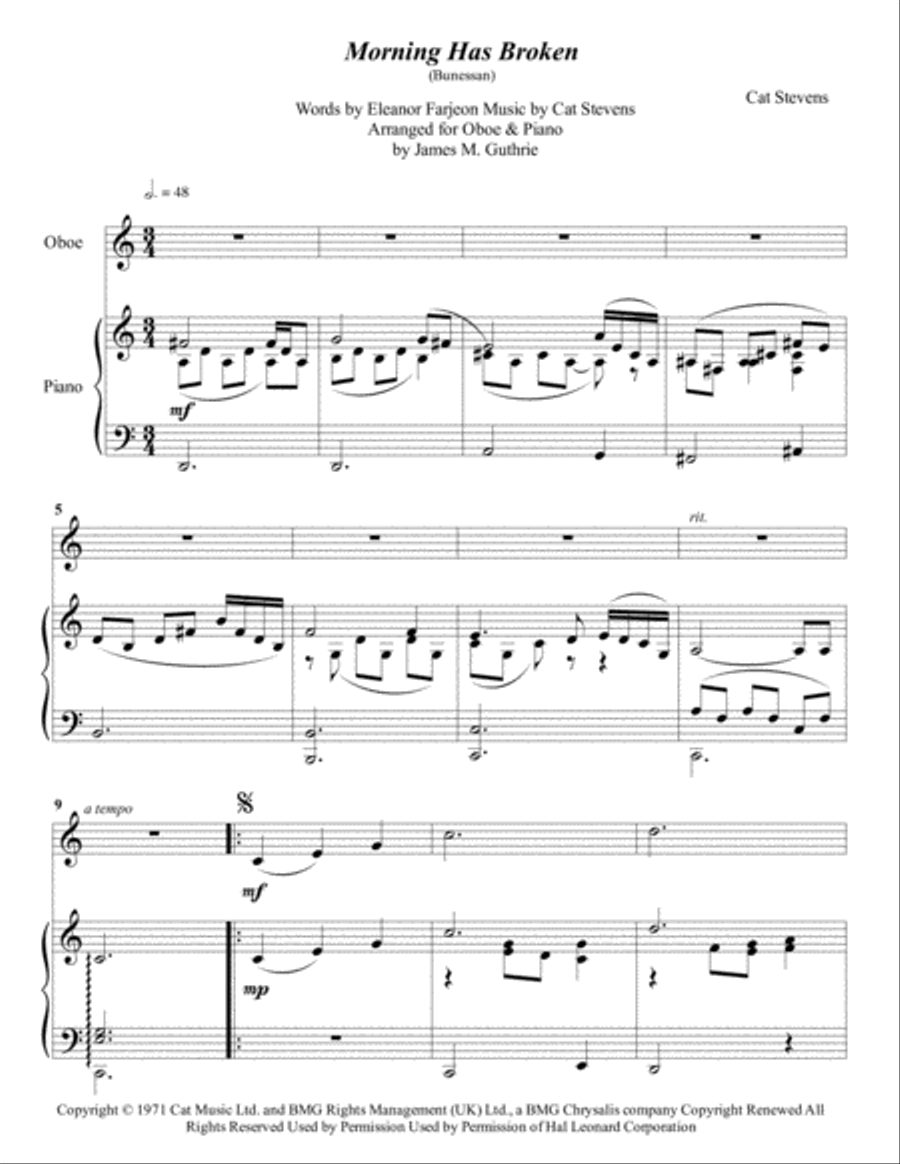Oboe,Piano - Level 1 - Digital Download SKU: A0.548743 By Cat Stevens. By Cat Stevens. Arranged by James M. Guthrie, ASCAP. Rock. Score and part. 11 pages. Jmsgu3 #3415211. Published by jmsgu3 (A0.548743). Very strong arrangement for Easter. Duration: 2:48. 84 ms. Score: 7 pg. Solo part 1 pg. piano part 3 pg. Morning Has Broken is a popular and well-known Christian hymn first published in 1931. It has words by English author Eleanor Farjeon and was inspired by the village of Alfriston in East Sussex, then set to a traditional Scottish Gaelic tune known as Bunessan [1] (it shares this tune with the 19th century Christmas Carol Child in the Manger[2]). It is often sung in children's services and in Funeral services.[3] English pop musician and folk singer Cat Stevens included a version on his 1971 album Teaser and the Firecat. The song became identified with Stevens due to the popularity of this recording. It reached number six on the U.S. Billboard Hot 100, number one on the U.S. easy listening chartin 1972,[4] and number four on the Canadian RPM Magazine charts. The hymn originally appeared in the second edition of Songs of Praise (published in 1931), to the tune Bunessan, composed in the Scottish Islands. In Songs of Praise Discussed, the editor, Percy Dearmer, explains that as there was need for a hymn to give thanks for each day, English poet and children's author Eleanor Farjeon had been asked to make a poem to fit the lovely Scottish tune. A slight variation on the original hymn, also written by Eleanor Farjeon, can be found in the form of a poem contributed to the anthology Children's Bells, under Farjeon's new title, A Morning Song (For the First Day of Spring), published by Oxford University Press in 1957. The song is noted in 9/4 time but with a 3/4 feel. Bunessan had been found in L. McBean's Songs and Hymns of the Gael, published in 1900.[5] Before Farjeon's words, the tune was used as a Christmas carol, which began Child in the manger, Infant of Mary, translated from the Scottish Gaelic lyrics written by Mary MacDonald. The English-language Roman Catholic hymnal also uses the tune for the James Quinn hymns, Christ Be Beside Me and This Day God Gives Me, both of which were adapted from the traditional Irish hymn St. Patrick's Breastplate. Another Christian hymn, Baptized In Water, borrows the tune. -Wikipedia
